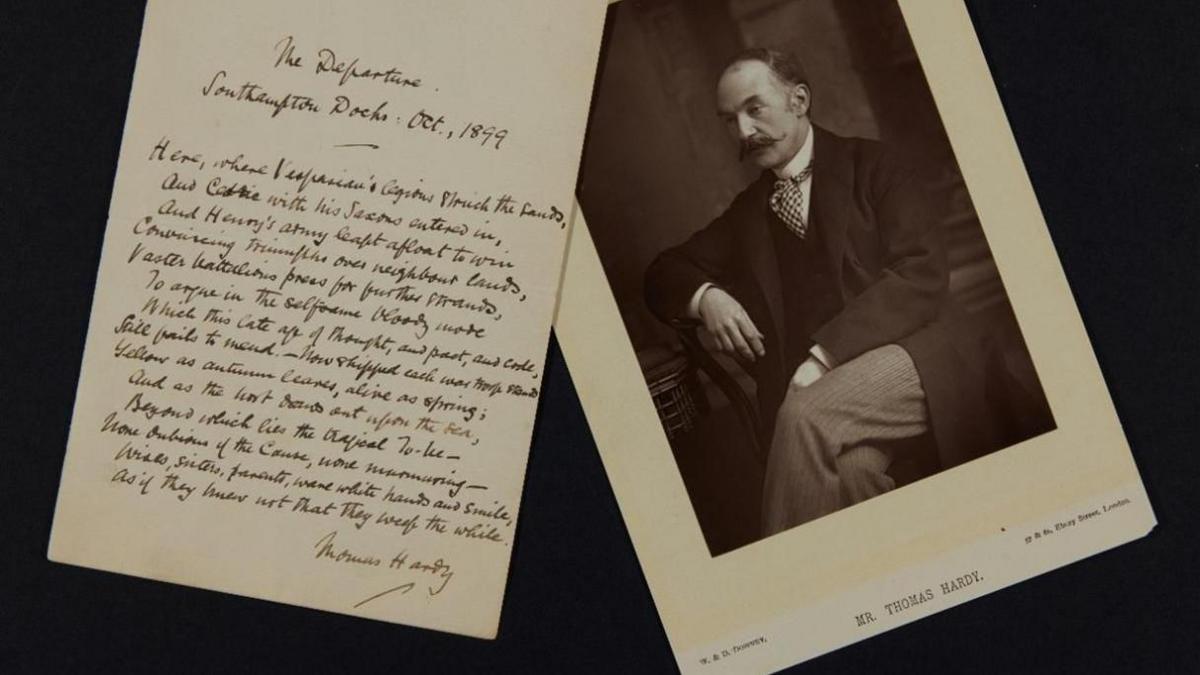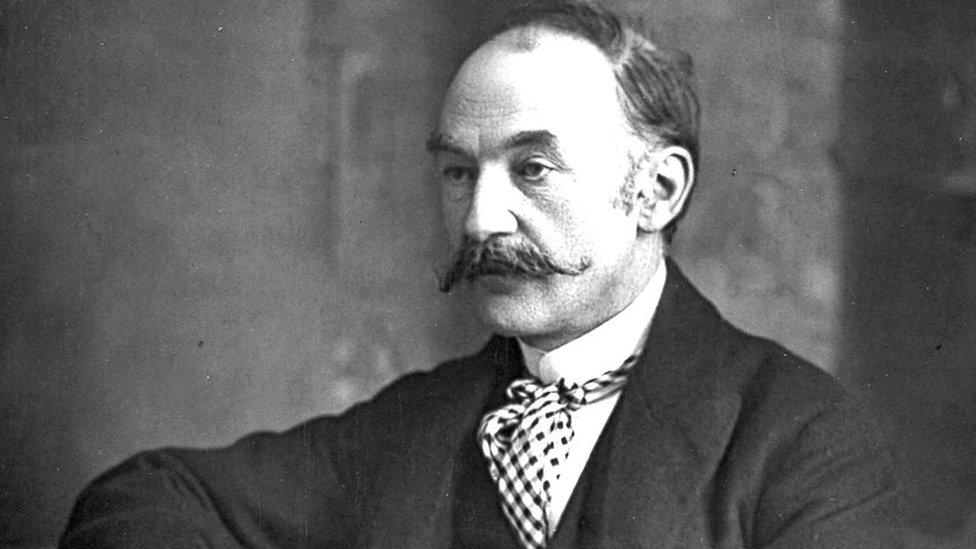Thomas Hardy manuscript returns home

Dorset History Centre bought the poem at an auction in Chicago
- Published
The manuscript of a Thomas Hardy poem has been returned to his home county of Dorset after spending almost 20 years in the hands of overseas collectors.
The Departure was inspired by Hardy's visit to Southampton Docks in 1899 as he watched thousands of troops leave for southern Africa to fight in the Boer War.
It was one of several pieces reflecting the Jude the Obscure author's antipathy to the conflict.
Dorset History Centre (DHC), based in Dorchester, paid $3,175 (£2,450) for the manuscript, external at an auction in Chicago.
It received funding for the purchase from charity Friends of the National Libraries.
DHC is the archive service for the county and said its acquisition would become part of a wider Hardy collection currently being catalogued for a project that will open to the public.
The poem observed there were "none dubious of the cause" of the war, which went on to claim the lives of tens of thousands and lasted until 1902.
'Dorset literary heritage'
It joins a letter already owned by DHC in which Hardy defends the piece against criticism from fellow writer Florence Hennike, asking her “I fancy you thought my sonnet on the departure too tragic?"
The poem's manuscript was first sold to an overseas buyer in 2005 after being put up for sale at Sotheby's in London and is believed to have been in the US ever since.
Ryan Hope, Dorset Council's culture cabinet member, said: "I'm delighted that DHC has been able to bring this notable piece of Dorset literary heritage back to its place of origin.
"The story perhaps underlines how, over time, elements of our literary and other heritage has been sold to overseas institutions and collectors - and how fortunate we are to have been able to bring it back into the large Hardy archive to ensure free ongoing public access."
Follow BBC South on Facebook, external, X, external, or Instagram, external. Send your story ideas to south.newsonline@bbc.co.uk, external.
Related topics
- Published11 March 2024
